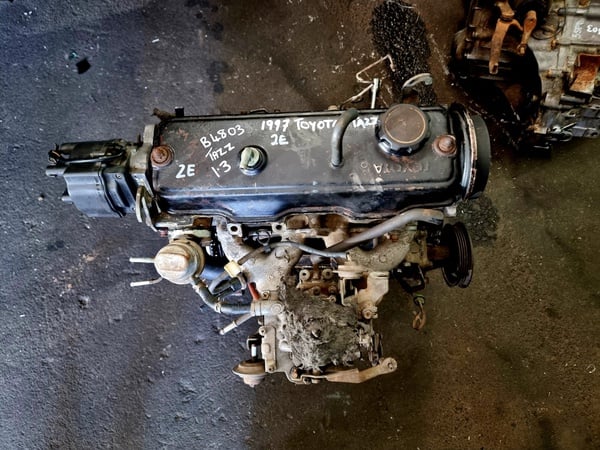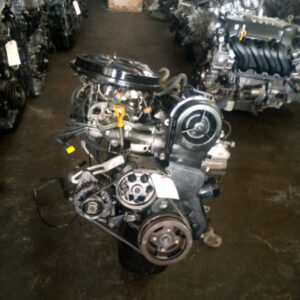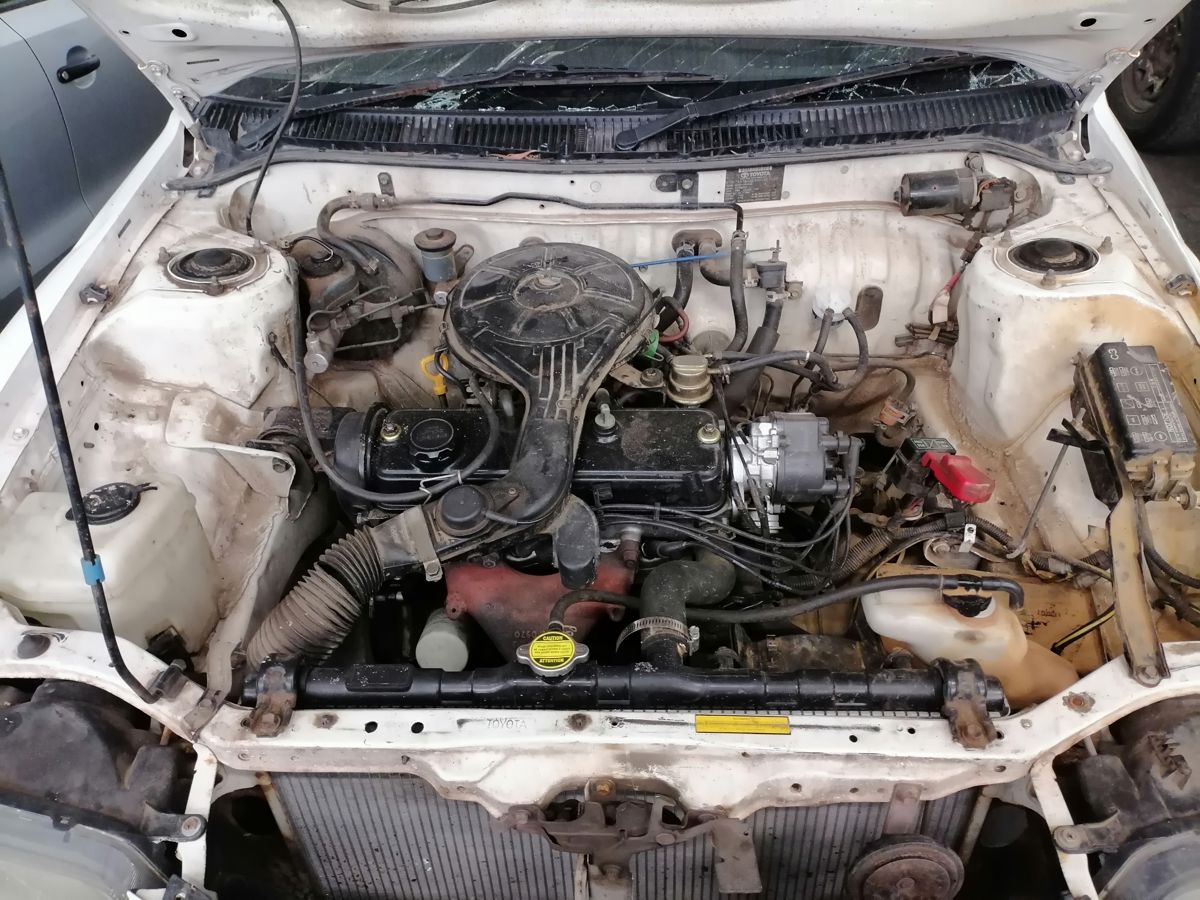Toyota Tazz: A Practical and Efficient Car for City Driving and Beyond
Toyota Tazz: A Practical and Efficient Car for City Driving and Beyond
Blog Article
Check Out the most up to date Trends in Engine Modern Technology Through Tazz
In the swiftly evolving landscape of automobile innovation, Tazz stands at the center, highlighting significant improvements in engine systems that prioritize both development and sustainability. tazz. From crossbreed engines that optimize gas performance to the emergence of hydrogen gas cells, the patterns forming modern-day powertrains are not just boosting efficiency yet likewise dealing with critical ecological difficulties. As the market remains to push limits, it is vital to take into consideration exactly how these advancements will certainly affect future transport solutions and the more comprehensive implications for global energy intake. What exists ahead in this pivotal transformation?
Hybrid Engine Innovations
Hybrid engine innovations represent a pivotal change in automotive modern technology, integrating the benefits of inner combustion engines with electrical propulsion systems. This assimilation not only enhances fuel efficiency but additionally decreases discharges, conference progressively stringent environmental laws. By using both power sources, hybrid engines can maximize efficiency, providing power when needed while saving gas throughout less requiring motoring conditions.
Current innovations in crossbreed technology include renovations in battery effectiveness and regenerative braking systems. These innovations enable greater energy recuperation throughout slowdown, which can be rerouted to assist in velocity or power accessory systems. Additionally, manufacturers are concentrating on compact layouts and lightweight products to maximize the effectiveness of hybrid powertrains.
The advancement of plug-in crossbreeds has also expanded the market, enabling chauffeurs to charge their vehicles utilizing typical electric outlets. This function often allows for considerable all-electric range, additional lowering reliance on conventional fuels. tazz. As the auto sector remains to progress, hybrid engine innovations are expected to play a crucial duty in bridging the space between standard automobiles and fully electrical models, providing a transitional solution that accommodates diverse consumer demands and preferences
Breakthroughs in Electric Powertrains
The auto landscape is quickly evolving, with electric powertrains emerging as a leading force in sustainable transportation. Advances in electrical vehicle (EV) technology are considerably improving performance, performance, and customer experience. Secret advancements include enhancements in battery chemistry, which have actually boosted energy density, minimized charging times, and expanded total battery life.
Solid-state batteries, for instance, assure to transform the marketplace by offering greater security and efficiency contrasted to standard lithium-ion cells. Furthermore, advancements in regenerative braking systems are allowing lorries to recover energy throughout slowdown, adding to general effectiveness.
In enhancement to battery technology, electric motor designs are becoming extra sophisticated. Advancements such as incorporated motors and progressed thermal management systems are aiding to optimize power delivery and minimize weight, eventually enhancing vehicle characteristics.

Collectively, these advances highlight the commitment to change towards cleaner, extra reliable transport options, positioning electric powertrains at the forefront of auto innovation.
The Rise of Hydrogen Fuel Cells
Progressively, hydrogen fuel cells are getting traction as a feasible option to conventional internal combustion engines and battery electric cars. This technology harnesses the chemical power saved in hydrogen, converting it right into electrical power with over here an electrochemical reaction with oxygen. The key by-product of this procedure is water, making hydrogen fuel cells an eco-friendly choice with zero emissions at the tailpipe.

Car manufacturers are increasingly buying hydrogen fuel cell technology, identifying its capacity for long-range applications and quick refueling capacities that match standard fuels. Additionally, sectors such as heavy-duty transportation and public transportation are especially appropriate for hydrogen fuel cells, where battery electrical options might fail because of weight and range limitations.
As study and financial investment proceed to increase, hydrogen fuel cells are positioned to play a substantial role in the future landscape of clean transportation and power services.
Enhancements in Internal Combustion Engines
Developments in inner combustion engine (ICE) modern technology are changing standard cars to satisfy contemporary ecological standards and performance expectations. Straight fuel shot, for instance, enables for far better atomization of gas, leading to more full burning and improved power outcome.
In addition, turbocharging has actually acquired prominence, allowing smaller engines to provide greater efficiency without the weight of bigger engines - tazz. This modern technology not only enhances performance however also contributes to lower gas consumption. Variable shutoff timing systems are additionally being improved, enabling engines to adjust to different driving conditions for enhanced torque and responsiveness
Additionally, the use of light-weight products in engine building and construction is becoming basic, more boosting fuel effectiveness by decreasing general lorry weight. Engine control systems (ECUs) are significantly innovative, allowing real-time adjustments that maximize efficiency and exhausts.
These enhancements collectively indicate a crucial change in ICE modern technology, straightening with global sustainability goals while still providing the performance motorists anticipate from their cars. As the industry progresses, these improvements remain to shape the future of conventional vehicle design.
Future Trends in Engine Performance
Substantial innovations in engine efficiency are expected as makers concentrate on incorporating sophisticated technologies to satisfy strict environmental regulations and customer demands. The shift in the direction of electrification, crossbreed systems, and alternate gas is improving the automobile landscape, driving technologies that improve fuel economy and reduce exhausts.
One of the essential patterns is the execution of innovative products and manufacturing strategies. High-strength alloys more and light-weight compounds add to reduced automobile weight, therefore enhancing overall efficiency. Furthermore, the adoption of turbocharging and variable shutoff timing modern technologies enables enhanced power outcome from smaller engines, further improving fuel economic climate.

Verdict
Technologies in hybrid engine systems, electric powertrains, and hydrogen gas cells show a dedication to reducing exhausts while boosting performance. Renovations in interior combustion engines and an emphasis on light-weight materials contribute to general engine efficiency.
From crossbreed engines that optimize fuel performance to the development of hydrogen gas cells, the fads the original source forming modern powertrains are not only enhancing performance but also attending to important ecological obstacles.Crossbreed engine advancements represent an essential shift in auto technology, integrating the benefits of internal combustion engines with electrical propulsion systems.In addition, turbocharging has actually gotten importance, enabling smaller engines to supply higher performance without the weight of larger engines. Furthermore, the adoption of turbocharging and variable valve timing modern technologies enables for enhanced power output from smaller sized engines, further boosting gas economic situation.
Improvements in inner burning engines and an emphasis on light-weight products add to overall engine efficiency.
Report this page